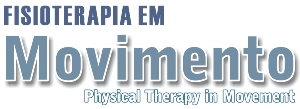Abstract
Introduction:
Regular physical activity is one of the main ways of avoiding compromised functional capacity and gaining muscle mass.
Objective:
investigate the differences in muscle strength and functional capacity of elderly people engaged in two types of strength exercises.
Method:
a cross-sectional study of 80 seniors of both sexes, 40 of whom engaged in weight training and 40 from the Fitness Zone in the city of Maringá, Paraná, state. A sociodemographic questionnaire, the sitting-rising and elbow flexion tests, and the functional capacity tests of the Latin American Development Maturity Group (GDLAM) were applied. The data were analyzed using the Shapiro-Wilk, Mann-Whitney “U” and Spearman’s correlation tests (p<0.05).
Results:
Most seniors who performed well in the sitting and rising test, rising from a chair and moving around the house and rising from the dorsal decubitus position engaged in weight training (p=0.001). Those engaged in weight training exhibited better upper limb strength and functional capacity in all the tests performed (p <0.05). Muscle strength is inversely related to functional capacity, that is, the better the result in the upper and lower limb muscle strength tests, the better the functional capacity of the elderly engaged in weight training.
Conclusion:
According to the results obtained, older people who engage in weight training display better upper limb strength and functional capacity than seniors from the Fitness Zone.
Keywords:
Aging; Motor Activity; Muscles; Training
